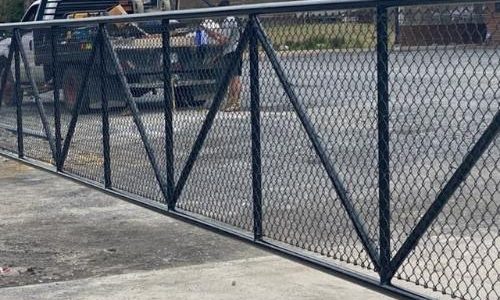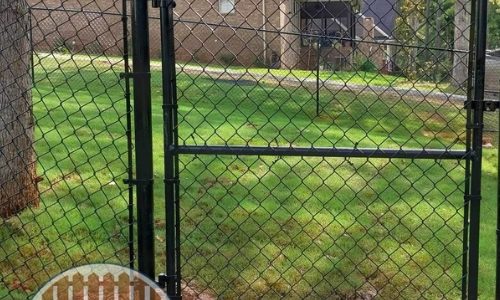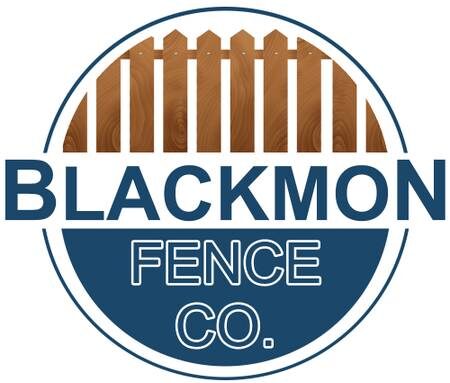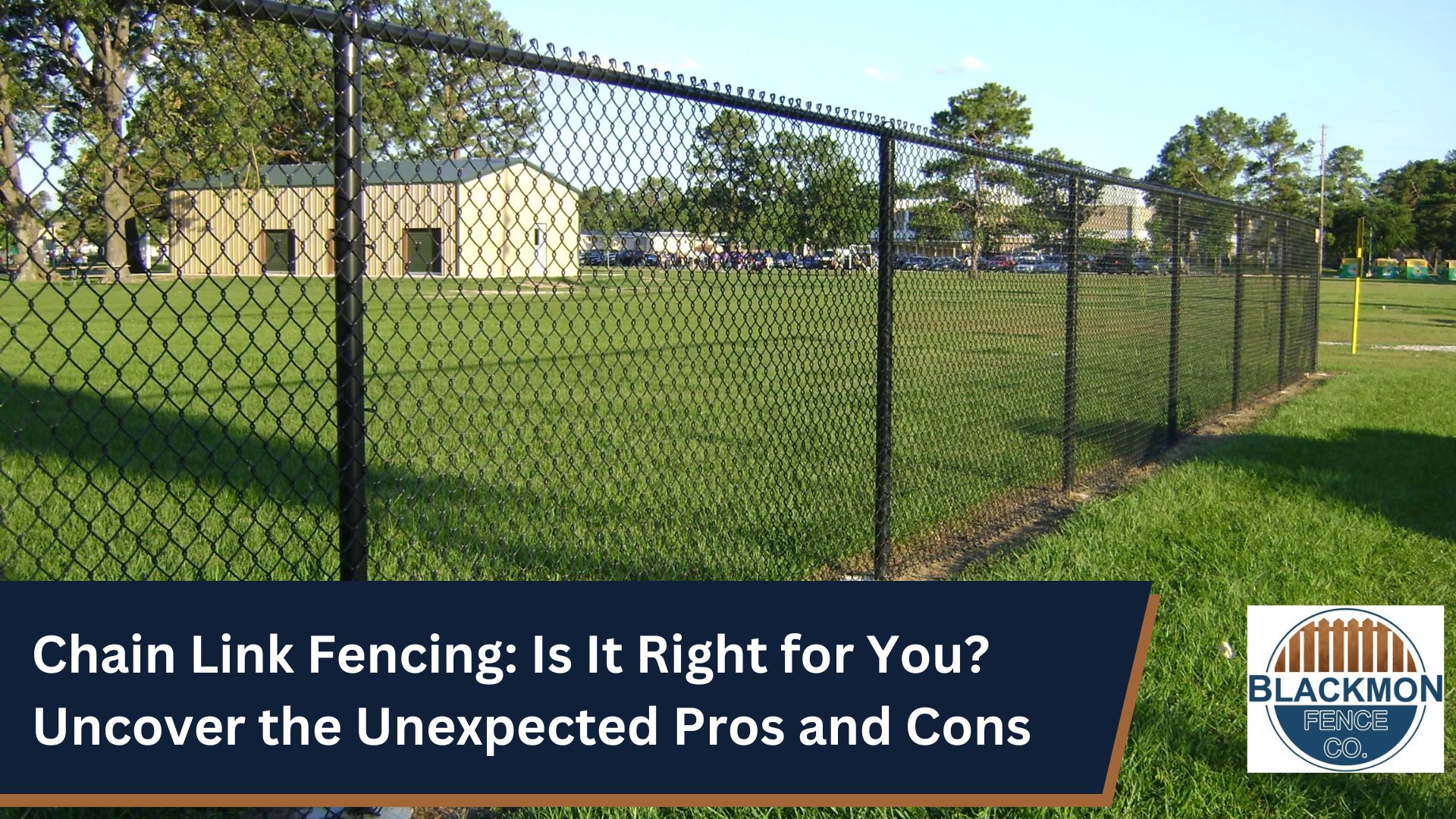Introduction
Chain link fencing, often recognized for its distinctive diamond-patterned mesh made from woven steel wires, has been a mainstay in both residential and commercial properties for decades. But is it the right choice for you? In this comprehensive guide, we delve into the intricate world of chain link fencing, examining its strengths and weaknesses to help you make an informed decision.
Here’s why you should continue reading:
- Discover the Durability and Cost-Effectiveness: Understand how chain link fencing stands up to the elements and how it compares in cost to other fencing options.
- Explore Customization Possibilities: Learn about the various ways you can tailor chain link fencing to meet your specific needs.
- Navigate Installation and Maintenance: Get insights into the installation process and ongoing maintenance requirements.
- Consider Long-term Implications: We discuss environmental impact, legal considerations, and the long-term value chain link fencing adds to a property.
This article aims to provide you with a detailed understanding of chain link fencing, helping you decide whether it aligns with your fencing needs.
What is Chain Link Fencing?


Chain link fencing is a widely used type of fence characterized by its woven steel wire mesh forming a distinctive diamond pattern. This fencing style is commonly used in residential, commercial, and industrial settings due to its versatility and functionality.
Historical Background
- Chain link fencing has a rich history, originating from the industrial era, where it was first used as a simple, effective means to create boundaries.
- Over time, advancements in manufacturing have improved its durability and versatility.
Common Uses
- Residential Applications: Often used in backyards and gardens for creating a secure boundary for pets and children.
- Commercial Settings: Popular in business areas and public spaces for security purposes.
- Industrial and Recreational Uses: Used around factories, warehouses, and sports fields due to its resilience and low cost.
Unique Features
- Mesh Design: The diamond pattern provides both visibility and security.
- Material: Typically made from galvanized or coated steel wire for rust resistance.
- Modular Nature: Allows for various heights and widths, accommodating different needs.
The Advantages of Chain Link Fencing
Chain link fencing offers a range of benefits, making it a popular choice for many property owners.
Durability and Resistance
- Weather Resilience: Capable of withstanding harsh weather conditions without significant damage.
- Longevity: With proper care, chain link fences can last for decades.
Economical Choice
- Cost Comparison: Generally more affordable than wood, vinyl, or wrought iron fencing.
- Long-Term Savings: Low maintenance requirements translate to cost savings over time.
Low Maintenance Requirements
- Easy Upkeep: Typically requires only occasional cleaning and tightening.
- Rust Resistance: Galvanized or coated options prevent rust, further reducing maintenance.
Effective Security
- Visibility: Offers clear sight lines, potentially deterring intruders.
- Strength: Strong woven wires provide a robust barrier against trespassers.
The Disadvantages of Chain Link Fencing
Despite its many advantages, chain link fencing also has some limitations that should be considered.
Aesthetic Limitations
- Perceived Look: Often viewed as less aesthetically pleasing compared to options like wood or vinyl fencing.
- Style Constraints: Its standard industrial look may not blend well with certain architectural styles.
Privacy Concerns
- Limited Privacy: The open weave design offers little in terms of visual privacy from neighbors or passersby.
- Solutions: Privacy slats or plants can be used to increase privacy, though this adds to the cost.
Noise Factor
- Wind Noise: Chain link fences can rattle and create noise in windy conditions, which might be bothersome in some environments.
Comparing Chain Link with Other Materials
It’s important to compare chain link fencing with other popular materials to understand its place in the fencing market.
Chain Link vs. Wood
- Cost: Chain link is generally more cost-effective than wood.
- Maintenance: Wood requires more upkeep due to risks of rot and insect damage.
- Aesthetics: Wood offers a more natural look and privacy.
Chain Link vs. Vinyl
- Durability: Both materials are durable, but vinyl offers more privacy and aesthetic options.
- Price Point: Vinyl is typically more expensive than chain link.
Chain Link vs. Aluminum
- Security: Both offer similar levels of security, but aluminum provides a more elegant look.
- Maintenance: Aluminum, like chain link, requires minimal maintenance.
Customization and Enhancement Options
Chain link fencing can be customized and enhanced to meet a variety of needs and preferences.
Adding Privacy Features
- Privacy Slats: These can be woven into the chain link to create a more private barrier.
- Vegetation: Planting shrubs or vines along the fence line can increase privacy and add a natural aesthetic.
Aesthetic Enhancements
- Color Options: Chain link fences come in various colors, allowing for better integration with the property’s style.
- Coatings: Vinyl or powder coatings can improve appearance and durability.
Long-Term Considerations
When choosing chain link fencing, it’s important to consider the long-term implications of your choice.
Lifespan and Durability
- Longevity: Chain link fences can last for many years, especially when made with galvanized steel.
- Resilience: The durability of chain link fencing makes it a long-term investment for property owners.
Environmental Impact
- Recyclability: Steel, a primary component of chain link fences, is recyclable, which is a plus for environmentally conscious homeowners.
- Eco-Friendly Options: Some chain link fences are made from recycled materials, offering a greener choice.
Legal and Local Considerations
Navigating the legal landscape is a crucial aspect of installing any fence, including chain link.
Building Permits and Regulations
- Permit Requirements: Some localities may require permits for fence installation.
- Local Laws: Familiarize yourself with local zoning laws and height restrictions.
Neighborly Relations
- Boundary Awareness: Ensure your fence installation respects property lines.
- Communication: It’s always a good idea to inform neighbors about your fencing plans to maintain good relationships.
Conclusion
Chain link fencing is a practical, durable, and economical choice for many homeowners and businesses. While it may have some limitations in terms of aesthetics and privacy, its advantages in cost, maintenance, and security make it a strong contender in the fencing market. As you weigh the pros and cons, consider how chain link fencing aligns with your specific needs and preferences.
At Blackmon Fence Company, we specialize in providing top-quality chain link fencing solutions tailored to your unique requirements. With over 15 years of experience in the industry, our team of experts in Columbus, Georgia, is committed to delivering exceptional service and craftsmanship.
Whether you’re seeking a robust security barrier or a versatile fencing option, we’re here to help you make the best choice for your property. Contact us today for a consultation and let us assist you in enhancing your property’s security and appeal with the perfect fencing solution.
Check Out Our Blog Post Series
Check Out Our Blog Post Series
- Unveiling the Perfect Fence: How to Match Your Needs with the Ideal Type!
- Vinyl Fencing Secrets: Why It's the Smart Choice for Savvy Homeowners!
- Transform Your Yard: Discover the Stunning Elegance of Ornamental Aluminum Fences!


